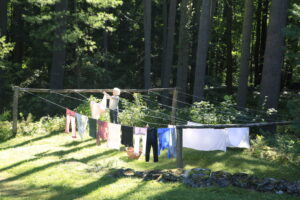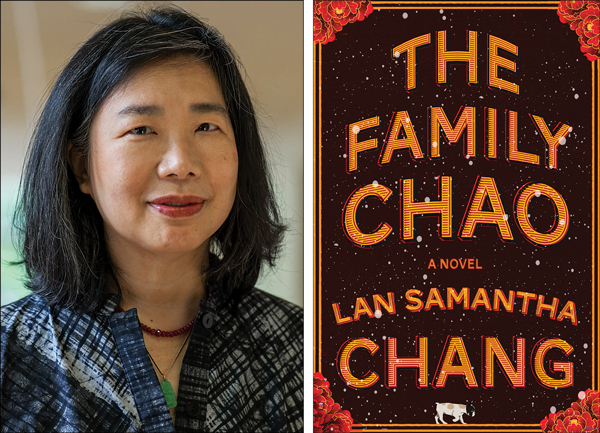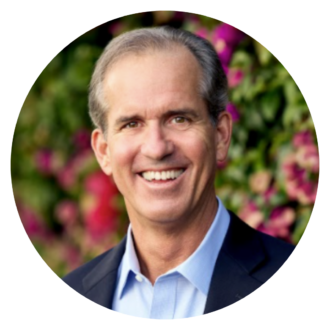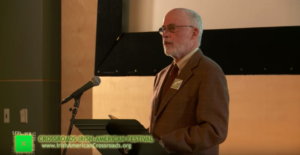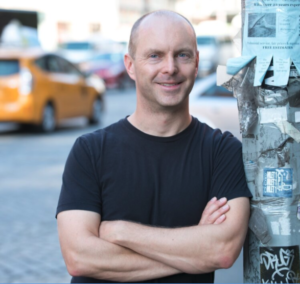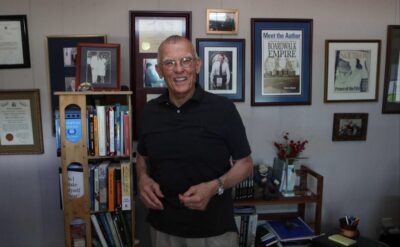Betsy Dovydenas: If You Want to Know How I Got Brainwashed
March 15, 2022 by David
Filed under Art and Photography, WritersCast
 If You Want to Know How I Got Brainwashed: Story and Paintings – Betsy Dovydenas – City Point Press – 978-1-947951-40-2 – 224 pages – paperback – $24 – ebook edition available at lower prices
If You Want to Know How I Got Brainwashed: Story and Paintings – Betsy Dovydenas – City Point Press – 978-1-947951-40-2 – 224 pages – paperback – $24 – ebook edition available at lower prices
In many ways, this is a simple story. A woman becomes involved with a small local church and soon finds herself taken in by their practices, inculcated into what is evidently a religious cult, which she joins willingly. Gradually she loses her agency to the church and its practices. The church takes over her mind – the other members and the minister tell her how to live, what to do, and of course, to give money, lots of money, to the church. They try to dissociate her from her family – her husband and children are not members, so they must be distanced. Soon, this woman does not recognize herself.
Because she has a supportive, loving family, she is rescued from the church and helped to separate herself from it, and to find herself again. She does, and she eventually sues the church for fraud and wins her lawsuit!
A simple but compelling story. In the hands of Betsy Dovydenas, this story is told in simple words and hundreds of brilliant composed and executed monoprints. The book is incredibly powerful and evocative. Its simplicity is part of what makes it so powerful. And the art is wonderfully done.
As many people have said about it, once you sit down to look at it, thinking you might delve into the story or just sample the paintings, you are instantly hooked. I could not stop once I started experiencing this book.
As Betsy says about the book, she tells how she was “tricked, sweet-talked, coaxed, manipulated, conned, coerced and exploited. In short, she was brainwashed.”
The book includes a foreword by Michael D. Langone, who is Executive Director of International Cultic Studies Association (ICSA) that is incredibly interesting as well. The psychology of cults is today incredibly important and valuable to understand. Modern mass culture is so much about the manipulation of reality that it behooves us to be as aware as we possibly can be of how easy it is for so many to fall prey to the influence of actors whose motives and desires are not in our own best interests.
It was wonderful to talk to Betsy about this book, and to hear about how she made the art in this book. It’s a terrible story in many ways, so frustrating to know that there are people who are willing to literally steal someone else’s mind in order to have power over them. But it does happen all too often and in today’s world, reading this book might help some of us recognize how cults work, how sneaky they are, and how easy it is to be taken in.
Betsy Dovydenas was born and raised in Excelsior, Minnesota, on Christmas Lake. She graduated Minnetonka High School, the University of Minnesota, and attended the Skowhegan School of Painting and Sculpture in Maine, where she studied with Philip Wofford, Paul Resika, Willard Midgette, Annie Poor, and Mary Frank, among other artists.
Betsy has been a painter for 45 years. Monoprints are her preferred medium. She has exhibited her work at the Berkshire Museum, the Painting Center in New York, the Jacob Lawrence Gallery at the University of Washington, Seattle, the Meyerhoff Gallery at the Maryland Institute College of Art in Baltimore, the Worcester Polytechnic Institute and the Boreas Gallery in Brooklyn.
“As a painter I’ve always considered it bad luck to censor myself. As though I’d lose the ability to see the visions in my head and draw my dreams.”
I for one am really glad that Betsy has not censored herself in any way, and that she has made this exceptional book to tell her story. Buy IF YOU WANT TO KNOW HOW I GOT BRAINWASHED.
Podcast: Play in new window | Download
Lan Samantha Chang: The Family Chao (A Novel)
February 8, 2022 by David
Filed under Fiction, WritersCast
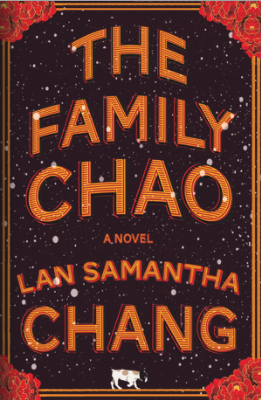 The Family Chao – Lan Samantha Chang – W.W. Norton – 9780393868074 – 320 pages – Hardcover – $29.00 – February 1, 2022. eBook versions available at lower prices.
The Family Chao – Lan Samantha Chang – W.W. Norton – 9780393868074 – 320 pages – Hardcover – $29.00 – February 1, 2022. eBook versions available at lower prices.
This is a beautifully written and thoughtfully composed novel about three brothers in a Chinese American family living somewhat awkwardly in a small town in Wisconsin. It has elements of the picaresque, the humorous and a great deal of sadness and pain that suffuses all.
At the heart of the novel are the three sons of the family patriarch, Leo Chao, who with his wife established and operated the Fine Chao restaurant in this small heartland community for over thirty years. The mother and father are almost mythological characters, he being the large appetite materialist and she being the spiritual – almost mystical – counterpoint to his outsized public persona.
When he dies, he is presumed to have been a murder victim by the residents of Haven, Wisconsin, and consequently unwanted attention is turned toward the brothers, each of whom has attempted to carve out an individual identity separate from their parents. Each of them is suspect in their formerly quiet community – Dagou, now the restaurant’s boisterous chef; Ming, financially successful but emotionally stunted; and James, the youngest, who is a dreamy college student not at all suited to the family tradition.
The book is a wonderful homage, well crafted by this very talented writer to The Brothers Karamazov. Each of the sons must struggle to understand and cope with what happened to his father, and one becomes the public scapegoat in the story. Chang is never heavy handed in her approach, and you don’t have to remember your Dostoyevsky to appreciate The Family Chao completely.
This is a complex and compelling story of what it is like to be an immigrant family in the heart of the heartland. It is also an American story, and very much a universal one at that. I enjoyed Chang’s writing and her storytelling, the many intriguing characters so finely portrayed, and the mystery in the novel that is unveiled unexpectedly that quite deftly ties together the entirety of the family Chao. Lan Samantha Chang is a terrific novelist and we had an equally terrific conversation about this book, her writing and her sense of the world at large.
Lan Samantha Chang is the Director of the Iowa Writers Workshop and Elizabeth M. Stanley Professor in the Arts at the University of Iowa. She is the author of a collection of short fiction and two novels and one book of nonfiction, All Is Forgotten, Nothing Is Lost. She has received creative writing fellowships from Stanford University, Princeton University, the Radcliffe Institute for Advanced Study, the Guggenheim Foundation, and the National Endowment for the Arts.
Podcast: Play in new window | Download
William J. Peters: At Heaven’s Door-What Shared Journeys to the AfterLife Teach about Dying Well and Living Better
January 25, 2022 by David
Filed under Non-Fiction, WritersCast
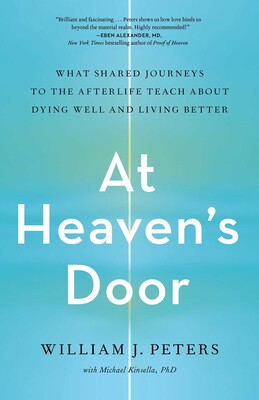 At Heaven’s Door – What Shared Journeys to the Afterlife Teach about Dying Well and Living Better – William J. Peters – with Michael Kinsella – Simon and Schuster – 978-1-9821-5042-6 – Hardcover – 248 pages – $26.00 – January 18, 2022 – ebook editions available at lower prices
At Heaven’s Door – What Shared Journeys to the Afterlife Teach about Dying Well and Living Better – William J. Peters – with Michael Kinsella – Simon and Schuster – 978-1-9821-5042-6 – Hardcover – 248 pages – $26.00 – January 18, 2022 – ebook editions available at lower prices
William Peters is a therapist who had worked for many years with people at the end of their lives. In 2000, when he was volunteering at the Zen Hospice Project in San Francisco , he experienced something very similar to what mystics describe and what some people who have been close to death have reported, the sense of floating in midair, completely out of the body. In this case, he was with his patient in this “other dimension” and the dying person looked at him and smiled. Peters himself returned to his body, but the patient remained unconscious and soon died.
This powerful experience set Peters off on what has become the journey of his life’s work. He began searching for other people who had had similar experiences. He spent more than twenty years finding people, talking to them, and meticulously categorizing their stories to identify the patterns and characteristics of what he calls the “shared crossing” experience. What is really interesting is how similar all these experiences are, regardless of age, gender, background, cultural origin, etc. Many of these stories are included in this book, as people have had visual and sensory effects that are to them evidence of another dimension, that brought with them powerful emotional after-effects that in most cases stayed with them and completely changed their understanding of reality.
Apparently this kind of experience is known to many in the hospice community and even some otherwise rationalist medical practitioners. The book is filled with stories of all kinds, some are spouses and parents of loved ones lost either suddenly or after long illnesses, and some stories are told by individuals who were simply present at someone’s final passage and were chosen to share the experience, or in some cases to help usher the dying person into the light of this “afterlife” dimension.
After years of research and documentation, Peters has a lot to say about what all of these experiences might mean for us – the living. Regardless of our outlooks and beliefs, we all want to know what will happen to us when we die, and those who have shared in the death experience as reported here might allay our all too reasonable fear and help explain what comes next. Our culture does not embrace the experience of death as many other cultures have done – our medicine tries desperately to stave off death, and we are all so attached to living, with no training or understanding of death, we push it away completely.
It does not matter whether you embrace or reject the stories told here, or the literal descriptions of the “afterlife” and the other dimensions the dying experience. Maybe what we experience at death is just a biological projection, after all. Whatever you may choose to believe, knowing more about death, understanding the end-of-life passage, and better integrating it into our lives is important for our psyches.
William Peters is the founder of the Shared Crossing Project and director of its Research Initiative. He has spent many years studying end-of-life experiences. Peters worked as a hospice volunteer with the Zen Hospice Project in San Francisco and as a teacher and social worker in Central and South America. A practicing grief and bereavement therapist, he holds degrees from Harvard’s Graduate School of Education and UC Berkeley.
I had a terrific conversation with William Peters. The book, and my conversation with the author have stayed with me and I continue to explore where it has taken me. It appears to be a simple book, but comes with many layers of understanding and thoughtfulness for the attentive reader.
Visit the Shared Crossing website here.
Podcast: Play in new window | Download
Enrique Salmón: Iwígara: American Indian Ethnobotanical Traditions and Science
January 9, 2022 by David
Filed under Non-Fiction, WritersCast
 Iwígara: American Indian Ethnobotanical Traditions and Science, The Kinship of Plants and People — Enrique Salmón –Timber Press — 978-1-60469-880-0 — Hardcover – $34.95 – ebook and audio book versions available at lower prices
Iwígara: American Indian Ethnobotanical Traditions and Science, The Kinship of Plants and People — Enrique Salmón –Timber Press — 978-1-60469-880-0 — Hardcover – $34.95 – ebook and audio book versions available at lower prices
This is a truly incredible and hugely inspiring book for me. Enrique Salmón, a member of the Raramuri tribe from Mexico, has spent a lifetime learning and studying the medicinal and cultural properties of North American plants. He now teaches at California State University-East Bay in Hayward, California. His work may place him in academia, but he is fully engaged in the natural world.
Salmon begins his work with the deeply held knowledge that all life-forms are interconnected and share the same breath, which is called Iwígara in the Raramuri tribe.
In this book, Salmón presents us with eighty of the most important plants used by North American indigenous peoples. Of course, plants have always been used as food and medicine by indigenous peoples. What is important knowledge for those who are interested in engaging with a plant centric life are the passed down information about identification and harvest, the nature and applications of plants for food and medicine, and to understand how they have been central to traditional stories and myths for the disparate cultures across this continent.
Salmón honors the traditions and practices of so many different tribes here, and helps us understand the variation across different biomes and cultures of the people who live in them. Some of us learn deeply in a specific place across long periods of time, while others may trade breadth for depth. Native peoples are among the former, but most modern people fall into the latter category. A book like this one helps bridge the two different approaches to knowledge. Salmón recognizes that tension, and manages it well here. He understands that one cannot live in deep connection to the natural world without choosing a place in which to live. But readers need to know where to begin, and this book can be an introduction for anyone who wants to begin their own journey of learning and knowledge about plants, healing and cultural traditions.
I should mention also that the book is beautifully designed and includes many excellent photographs and illustrations, most in color. It is excellent work, combining narrative with references suited to beginners and experienced naturalists alike.
Enrique is also the author of Eating the Landscape: American Indian Stories of Food, Identity, and Resilience (2012).
I was honored to have the opportunity to speak with Enrique Salmón for Writerscast about his work, and hope you will enjoy listening to a truly knowledgeable plant practitioner.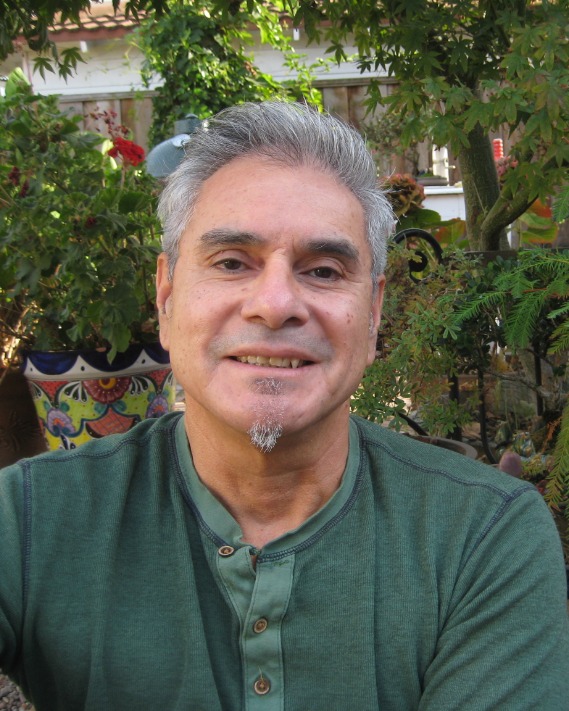
Purchase Iwígara from Bookshop.org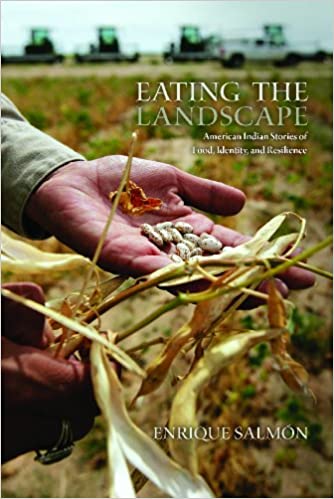
Podcast: Play in new window | Download
Peter Quinn: Banished Children of Eve: A Novel of Civil War New York
December 10, 2021 by David
Filed under Fiction, WritersCast
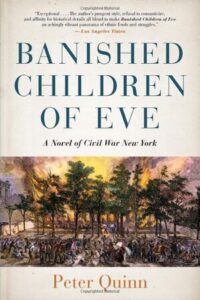 Banished Children of Eve: A Novel of Civil War New York – Peter Quinn – Empire State Editions (Fordham University Press) – 978-08232-9408-4 – 612 pages – paperback – $17.95 (eBook version is not available for this title)
Banished Children of Eve: A Novel of Civil War New York – Peter Quinn – Empire State Editions (Fordham University Press) – 978-08232-9408-4 – 612 pages – paperback – $17.95 (eBook version is not available for this title)
Historical novels based in New York City have always appealed to me. I am not sure why. Maybe it has something to do with the time I spent with my grandparents, who lived in New York City, took me frequently to the Museum of the City of New York, and showed me many of the historical sites of the city. Maybe it is simply because so much of American history is the history of that great city.
I picked this book to read while browsing a bookstore for the first time since the pandemic began. Book discovery is a wonderful thing, and something many of us have missed. There are occasions when a book seems to jump off the shelf and into your hands, drawn there by some mysterious bookstore magic. Sometimes those discoveries are serendipitous and that was definitely the case with this novel. It was not the only book I bought that day, but it jumped my queue and I devoured the book in a way that reminded me of my youthful nights under the covers reading by flashlight.
Banished Children of Eve is one of those longish historical novels that is a joy to immerse oneself in. It is a great story about a dramatic time and place, with terrific well-drawn characters and a great story unfolding in multiple voices. And even the minor characters are brought to life by Quinn’s sympathetic descriptions.
The story takes place in 1863 when the Civil War is its third bloody year and the Union, having exhausted its volunteer army, has been forced to impose the first military draft. In New York City, where this book is set, that is a fateful decision, one that will set off the worst urban riot in American history. The cast of characters created by author Quinn represents every element of New York’s cultural community including an Irish-American hustler, a dishonest Yankee stockbroker, a young immigrant serving girl, a beautiful mixed-race actress and her white lover (a struggling minstrel). Surrounding these main characters are a number of historical, real-life characters we recognize, including the Union General George McClellan, Archbishop “Dagger John” Hughes and even the songwriter Stephen Foster.
All come together in the emerging disaster of the Draft Riots, bringing to life a period in American history that is certainly less well-known to most Americans than the more often told stories of battles and national politics of our war-torn country.
William Kennedy’s description of Peter Quinn pretty much sums up how I feel about this book: “Peter Quinn takes history by the throat and makes it confess.” That is perhaps one of the greatest book blurbs ever, by the way.
Quinn is a natural storyteller, and if you are not familiar with this incredible period in American history, I recommend you get a copy of this book immediately and dive in. You will be amazed and thrilled to read this book.
Talking to Peter was great fun for me. We certainly could have gone on for hours. I hope you enjoy our conversation as much as I did.
Quinn was the chief speechwriter for Time, Inc. and retired as corporate editorial director for Time Warner at the end of 2007. He received a B.A. from Manhattan College, an M.A. in history from Fordham University and completed all the requirements for a doctorate except the dissertation. He was awarded a Ph.D., honoris causa, by Manhattan College in 2002.
In 1979, Quinn was appointed to the staff of Governor Hugh Carey as chief speechwriter. He continued in that role under Governor Mario Cuomo.
Originally published in 1994, Banished Children of Eve won a 1995 American Book Award. Hour of the Cat, set in Berlin and New York on the eve of WWII, was published in 2005, a nonfiction collection, Looking for Jimmy: In Search of Irish America was published in February 2007. His third novel, The Man Who Never Returned is based on the still-unsolved 1930 disappearance of NYS Supreme Court Justice Joseph Force Crater, published in 2010.
Quinn co-wrote the script for the 1987 television documentary McSorley’s New York, for which he won an Emmy. He appeared in several PBS documentaries, including The Irish in America, New York: A Documentary Film, and The Life and Times of Stephen Foster, as well as the dramatic film, The Passion of Sister Rose. Quinn was an advisor on Martin Scorcese’s film Gangs of New York, the story of which precedes and in some ways underpins Banished Children of Eve.
Quinn was the editor of The Recorder: The Journal of the American Irish Historical Society from 1986 to 1993 and has published articles and reviews in the New York Times, Commonweal, America, American Heritage, the Catholic Historical Review, the Philadelphia Enquirer, the L.A. Times, Eiré-Ireland, and other newspapers and journals.
Quinn is also president and co-founder of Irish American Writers & Artists.
You can buy Banished Children of Eve at Bookshop.org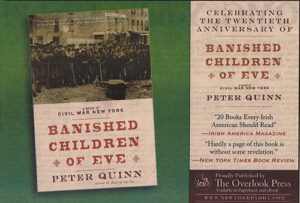
Podcast: Play in new window | Download
Geoff Rodkey: Lights Out in Lincolnwood (A Novel)
November 3, 2021 by David
Filed under Fiction, WritersCast
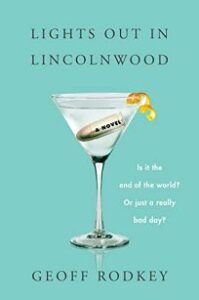 Lights Out in Lincolnwood – A Novel – Geoff Rodkey – HarperCollins – 9780063065925 – Paperback – 544 pages – $16.99 – ebook versions available at lower prices
Lights Out in Lincolnwood – A Novel – Geoff Rodkey – HarperCollins – 9780063065925 – Paperback – 544 pages – $16.99 – ebook versions available at lower prices
I have to admit that I did not expect to really like this book anywhere near as much as I did. I’ve certainly read my share of suburban based stories that wittily poke fun at modern life. But Geoff Rodkey surprised me with Lights Out in Lincolnwood and I found myself reading it every day in big chunks – the kind of book that is dangerous to my sleep as I can’t stop reading. Like eating dried fruit. Except that I did not regret it later.
Today’s world seems to encourage writers to imagine the worst about our future – this book does that for sure. But Rodkey keeps us from getting depressed with humor, even as he tells us the truth about ourselves and our illusions we like to carry around about how we would act under pressure.
And there is not much more pressure one can imagine than the story Rodkey tells here, as an unexplained collapse of our infrastructure suddenly happens. By focusing on a single family and its community, Rodkey is able to bring the whole story down to a practical level, as his characters, whom we readily recognize, go through an almost Marxian (that’s Marx Brothers by the way) experience that readers can’t help laugh at and simultaneously shudder about. It is frighteningly close to home.
How do we survive calamity when we have no idea how to do anything that is needed to survive and the tools we need don’t work and the neighbors we thought we knew turn into completely different people – or maybe reveal themselves for whom they really are, at last.
The entire book takes place during an action packed and tension filled four days – chaos, change, fear, hysteria, and perhaps even joy mark the struggle of the Altman family as they try to determine how to live in a world without technology. They struggle with getting food and water, their modern past-times and addictions, neighbors who become militaristic and brutal, and the town’s looting of the local Whole Foods is the least of the craziness they have to contend with as they try to figure out just what is going on and how they will manage to get through a worldwide catastrophe.
It’s impossible to not be captivated by this book. It was fun to read and to talk to Geoff, and I know it made a difference as its story line and characters have stayed with me long after I finished reading the book. We had a terrific time talking for Writerscast about this book and Geoff’s work as a writer in various media.
Geoff Rodkey is the New York Times best-selling author of ten children’s books, including the Tapper Twins and Chronicles of Egg series; We’re Not From Here; and Marcus Makes a Movie, a collaboration with actor Kevin Hart. He’s also the Emmy-nominated screenwriter of Daddy Day Care and RV, among other films. Geoff lives in New York City with his family.
In particular, We’re Not From Here, A sci-fi comedy for middle grade readers about a family of humans who immigrate to an alien planet after Earth is destroyed (written for middle grade readers) looks like another fun Rodkey story.
Podcast: Play in new window | Download
Susanne Paola Antonetta: The Terrible Unlikelihood of Our Being Here
August 11, 2021 by David
Filed under Non-Fiction, WritersCast
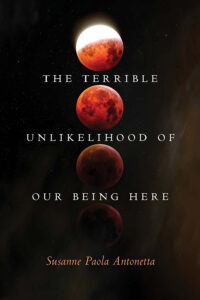 The Terrible Unlikelihood of Our Being Here – Susanne Paola Antonetta – 978-0-8142-5780-7 – 248 pages – paperback – February, 2021 – Mad Creek Books – $22.95 – ebook editions available at lower prices
The Terrible Unlikelihood of Our Being Here – Susanne Paola Antonetta – 978-0-8142-5780-7 – 248 pages – paperback – February, 2021 – Mad Creek Books – $22.95 – ebook editions available at lower prices
Sometimes one literally chances across a terrific book; it appears unbidden and takes over one’s complete attention. A surprise appearance in the daily maelstrom of life. This remarkable memoir by Susanne Paola Antonetta did just that for me, striking me like a lightning bolt out of the blue, and completely altering the trajectory of my thinking.
I’ve read alot of books and loved many of them. This book stopped me in my tracks. Reading it over the course of a few evenings, this author made me think and feel and understand another person’s experience, her deeply felt and beautifully described mind and being. That is quite an accomplishment and makes this a very special book indeed.
Antonetta brings us into her youth, the place of “Summerland” and her family’s life on the marshy border of the ocean in southern New Jersey. Like the descriptions of physics and astrophysics she intersperses between her memory pieces, her description of this place, the people in her family, and her own life are simultaneously dreamlike and definitive.
Her grandmother and mother are key figures throughout. And then she introduces her own experiences with bipolar disorder, drugs, and the trauma of electroshock treatment woven together with those brilliantly written descriptions of ideas in neuroscience and physics, and then there are her conversations with psychics and meditations on understanding their messages from inter-dimensional spaces. What a journey!
This is a memoir with great power and beauty, taking us into the past, the present and realms beyond, where ideas and perhaps the ground of being may or may not be found.
I won’t tell you much more about the book. I think you need to discover it for yourself. I loved it, and I really enjoyed speaking to Susanne as well. we had a terrific talk about this book and her writing.
This is a book I intend to re-read and work to understand more fully. Once is not enough.
“Antonetta tackles nothing less than consciousness and existence, employing an amalgam of science writing and mysticism. It’s hard to imagine another writer who could not only make such a project work but also make it seem natural and necessary.” —Robin Hemley, author of Borderline Citizen: Dispatches from the Outskirts of Nationhood.
Susanne Paola Antonetta is has written a number of books, including Make Me a Mother, Curious Atoms: A History with Physics, Body Toxic: An Environmental Memoir, A Mind Apart: Travels in a Neurodiverse World, a novella, and four books of poetry. Her work has been published in a variety of newspapers and magazines, including the New York Times, the Washington Post, Orion (one of my favorite magazines), the New Republic, and others. She lives in Bellingham, Washington.
Visit Susanne’s website for more information about her and her work.
You can buy the book from Bookshop.org.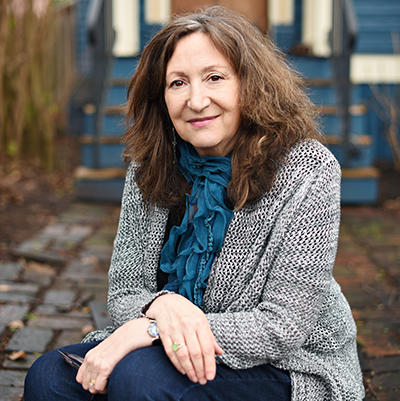
Podcast: Play in new window | Download
Nelson Johnson: Darrow’s Nightmare-The Forgotten Story of America’s Most Famous Trial Lawyer
July 12, 2021 by David
Filed under Non-Fiction, WritersCast
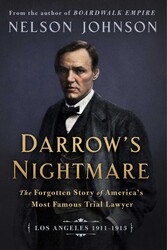 Darrow’s Nightmare: The Forgotten Story of America’s Most Famous Trial Lawyer (Los Angeles 1911–1913) – Nelson Johnson – 9781948122733 – 360 pages – April 20, 2021 – Hardcover – Rosetta Books – ebook editions available at lower prices
Darrow’s Nightmare: The Forgotten Story of America’s Most Famous Trial Lawyer (Los Angeles 1911–1913) – Nelson Johnson – 9781948122733 – 360 pages – April 20, 2021 – Hardcover – Rosetta Books – ebook editions available at lower prices
One of the great personal joys that working in the book business enables is that I get to work with authors. I’ve done some consulting with Rosetta Books, the publisher of Darrow’s Nightmare, and through the publisher have had the opportunity to meet and get to know former New Jersey judge Nelson Johnson, who turns out to be a terrific person, as well as a wonderful storyteller, historian, and writer.
I had known of Nelson Johnson mainly because his earlier best-selling book, Boardwalk Empire, became the basis of the excellent HBO series of the same name. Boardwalk Empire documents the tumultuous story of the Atlantic City in the early twentieth century, a time when racketeers and corrupt politicians ran the city. Boardwalk Empire is a terrific book with incredibly interesting characters and clearly, Nelson Johnson knows how to write history that conveys characters and their stories dramatically for readers.
In Darrow’s Nightmare, Nelson turns his attention to Clarence Darrow, one of the greatest trial attorneys in modern American history, in one of the most tumultuous and challenging episodes of his long career. Best known today for his role in the famous Scopes trial of 1925 (and the film, Inherit the Wind), Darrow was actually most famous in his earlier years as a brilliant defender of labor rights, at a time when organized labor was literally battling with business owners across the country for basic freedoms and policies we take for granted today.
In 1911, Darrow went to Los Angeles with his wife, Ruby, at the behest of union leaders there. He was to defend two union iron workers who had been charged with the murder of twenty employees of the Los Angeles Times, whose building had been bombed as part of a major labor dispute.
After he negotiated a plea bargain for the iron workers (with the help of Lincoln Steffens), Darrow himself was indicted for attempted bribery of a juror in the trial. Darrow was fortunate to be represented by the brilliant (though flawed) California criminal attorney Earl Rogers, who was himself one of the most successful trial attorneys in American history and with the help of Rogers and friendly juries, Darrow was able to escape being convicted in two different trials. He returned to Chicago in disgrace, set himself to rebuilding his career, and went on to take on some of what are now the most famous trials of his era, including the Leopold and Loeb case and the important civil rights Sweet case in Detroit, where he defended the right of a black family to self-defense. Looking over the arc of Darrow’s long legal career, the LA trials of 1911-1913 form the most crucial episode of his life.
These trials made national news at the time, but have been mostly lost to history now. Nelson has brought the entire scene to life in memorable prose. He may be one of the few who have read the entire 8,500 page trial transcript. It is quite a story and well worth reading. And Nelson tells the story behind the story in the podcast episode presented here, which I very much enjoyed recording.
Darrow captured the imagination of many Americans in his time in history. I think that reading Darrow’s Nightmare, you might be captured as well, and see him as a flawed hero, a human being much more complex than any film could portray.
“The marks of battle are all over his face” —H.L. Mencken
“A fascinating portrait of Clarence Darrow as we’ve never seen him before—as a criminal defendant. In Darrow’s Nightmare, Nelson Johnson tells the riveting tale of America’s most famous lawyer as he fights for his life, marriage, career, and reputation. I couldn’t put it down.” —Terence Winter, Creator & Executive Producer, Boardwalk Empire
Nelson C. Johnson practiced law for 31 years prior to being appointed to the New Jersey Superior Court. During his final five years on the bench, he was one of three judges in New Jersey assigned to litigation, involving product liability claims. In the early 1980s Nelson represented the Atlantic City Planning Board when the modern casino period was beginning. That experience motivated him to write Boardwalk Empire. He has written two other books about New Jersey history. During the past 15 years, Nelson has made more than 200 presentations on his books before a wide range of audiences.
He lives in Hammonton, New Jersey.
Buy the book here from Bookshop.org. Visit the author’s website here.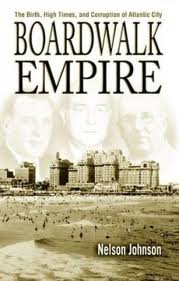
Podcast: Play in new window | Download
Ross Benes – Rural Rebellion: How Nebraska Became a Republican Stronghold
June 4, 2021 by David
Filed under Non-Fiction, WritersCast
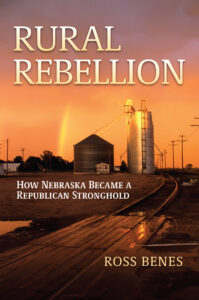 Rural Rebellion: How Nebraska Became a Republican Stronghold – Ross Benes – 9780700630455 – hardcover – University Press of Kansas – 256 pages – $29.95 – January 26, 2021 – ebook versions available at lower prices
Rural Rebellion: How Nebraska Became a Republican Stronghold – Ross Benes – 9780700630455 – hardcover – University Press of Kansas – 256 pages – $29.95 – January 26, 2021 – ebook versions available at lower prices
Ross Benes is a journalist and author who now lives in New York City. But he was born and raised in a tiny town in Nebraska. That experience shaped his early worldview, and of course also makes him suited to understand and explain the culture and politics of his home state to the rest of the world. As the book subtitle lays out, he’s after explaining how Nebraska, like so many other midwestern and southern states, has gone from having a diverse electorate to being viewed as almost monolithically conservative in its views and policies. While the book is focused on Nebraska, much of what he describes about the political culture of his home state broadly applies to much of the rest of our contentious country.
Nebraska may be quite similar to many other midwestern states, but as Benes explains, Nebraska has a long history of populism and quite a commitment to direct democracy and even nonpartisanship. This makes it even more curious to try to understand what has happened there over the past twenty five or more years.
Nebraska is, except for its urban and college town oases, as purely “Trump country” as it could be. As a native-born Nebraska who has broadened his horizons by living in (heavens protect us) the heart of liberal America and working for (even worse) the so-called “liberal media,” Benes may be an ideal interlocutor between these two wildly divergent Americas.
Rural Rebellion gives Benes the opportunity to document Nebraska, past and present, exploring its political history and current explores landscape through the lens of his own personal, family, and small town experiences. There is no question that he deeply cares for his home town and home state, despite the flaws he is determined to call out. In the course of writing this book, he interviewed family, friends, and fellow citizens as well as US senators, representatives, governors, state representatives in the uniquely Nebraskan unicameral governing body, and other political figures, all toward showing Americans not only how we got here, but what we might imagine doing by way of antidote. Benes remains clear-eyed about the difficulty of any sort of success in “healing” the rifts in our body politic and culture. He wishes for a form of discourse that may literally be impossible in a world where some 30% of the overall population, and a much higher percentage of the Nebraska population, simply does not recognize the same reality as many other Americans. Fox News certainly deserves some of the credit, but as Benes points out, small town churches and their powerful anti-abortion, anti-“sin” worldview, and the lack of cultural diversity in rural communities are deeply rooted and provide much to explain how it is we got where we are today.
Benes has one foot rooted firmly in the state he grew up in, the other foot is planted in a completely different environment. Because he has experienced both nodes of our dissonant culture, he can see the full spectrum of our anguish. I am not sure anyone can resolve the differences though. And I do not believe that the “both sides” approach of traditional journalism really works anymore.
While it is certainly true that people in the Fox News dominated, evangelically oriented. semi-rural heartland are all too often viewed as stick figures by many who live in the more diverse and tolerant urban coasts, it is Fox and the church leaders who create imaginary portraits of the people with whom they disagree in outlook and belief, and the right wing now stokes a belief system that see fellow citizens as less than human to a degree that is impossible to excuse. This is not a situation where “both sides” are equally responsible.
In Rural Rebellion, Benes recounts real-life stories that help explain rural Americans’ attitudes about abortion, immigration, and the so-called big government they forget supports their agricultural successes. He also tells his own stories about how his views changed over time away from home, and crucially locates some of the reasons in the ways that what he was taught were impossible. While his argument – that Americans would be less hostile to one another if they just knew each other a little better – makes sense in theory, there are too many powerful forces at work that have a vested interest in keeping Americans at each others’ throats. We want to believe in the essential goodness of our fellow citizens, but there are those that are working diligently to prevent that from happening. No matter where you may fall in the spectrum of belief system, Rural Rebellion is quite useful and a valuable contribution to our socio-political discourse.
Ross Benes is the author of The Sex Effect (2017) and Sex Weird-o-Pedia (2019). He has written for Entertainment Weekly, Esquire, Lincoln Journal Star, Nation, Omaha World-Herald, Rolling Stone, Wall Street Journal, and others. In addition, he is an analyst at eMarketer. A native of Brainard, Nebraska (population 420), he now lives in New York City but still roots for the Nebraska Cornhuskers.
We had a terrific conversation about this book. I hope you enjoy it as well.
You can find the book for sale here at Bookshop.org.
“Rural Rebellion is informative whether or not you agree with the author’s political views. . . . Benes does a good job connecting past and present, and he asks many of the questions that historians are likely to ask when they look back on the early twenty-first century.” —Nebraska History
Podcast: Play in new window | Download
Anders Dunker: Rediscovering Earth
May 18, 2021 by David
Filed under Non-Fiction, WritersCast
 Rediscovering Earth: Ten Dialogues on the Future of Nature – conversations with Anders Dunker – OR Books – 9781682195086 – Paperback – 240 pages – $23 – ebook versions available at lower prices
Rediscovering Earth: Ten Dialogues on the Future of Nature – conversations with Anders Dunker – OR Books – 9781682195086 – Paperback – 240 pages – $23 – ebook versions available at lower prices
Thinking about how to think about climate, earth, humans on it, and the future, are major challenges for all of us who care about the future of our planet. It may be that most of us alternate between despair and rage, and even with an optimist’s outlook, we have trouble dealing with the sheer scope of what is happening to our surroundings (I think using the words “environment” and “earth” and “planet” has now become counterproductive).
I am constantly searching for writing, whether it is in books, online or in magazines, that will offer me constructive perspectives, different and hopefully better conceptual frameworks than those we have developed, toward making it possible to be both continually engaged and continually energized. I don’t usually feel I can do that on my own.
Anders Dunker’s collection of conversations with some of the deeper thinkers about the future and us in it, turns out to be very useful. The diverse viewpoints, the language of thoughtfulness and care, the commitment to inquiry, are all inspiring elements of this short book. And with such a diverse set of outlooks, it is possible to not lose sight of the core reason for this book to exist – to inspire hope.
Dunkers poses this question: “if we know that we are destroying the planet, our habitat, why do we continue to do it?” His dialogues attempt to investigate this question, and thereby come to some sense of how we might go forward, not ourselves alone, but the nature that we rely on, together.
This is the challenge we face right now. The challenge will be different in a few years, the unfolding story will force a reckoning. For now, those who read the stories in Rediscovering Earth will be able to come to a better sense of what we can and must do together in this moment.
Dunkers proposes that our future, nature itself, will be based on how we navigate the realm of culture, including philosophy, art and literature, the groundwork of our being, as much as or more than in scientific and technological matters. In order to act, we must redefine ourselves, become truly planetary citizens, and recognize how we are all connected, and then act upon, from that, understanding.
We had a terrific conversation, not only about the book and the contributors to it, but about how we will uncover the future and live in it together. A very hopeful experience. I came away from our talk fully energized, and feeling stronger.
Anders Dunker bio (from his website): Born in Norway, raised in the countryside in a family much dedicated to wildlife and nature. Educated in humanistic subjects and Cultural History at the University of Oslo, with Philosophy, Comparative Religion and Comparative Literature as main subjects. Teacher of Aesthetics and other subjects at the University of Oslo, Philosophy and Cultural History in Rome and Barcelona.
Senior lecturer at Kulturakademiet (Norwegian private college) for 10 years, now writer for acclaimed Norwegian & international newspapers and magazines (Le Monde diplomatique, LA Review of Books, NyTid, Vagant, Samtiden, Modern Times Review, Agora). Board member of the Norwegian Writers’ Climate Campaign,
Series Editor of Futurum Collection at Existenz Publisher (Norway) and Editorial Board Member at Technophany, a journal for Philosophy and Technology.
His current book projects include an essay on the future as seen from California and a volume on Peter Sloterdijk’s philosophy. Anders currently lives with his wife, an environmentalist and animalist singer, in Los Angeles, California. He is also a plein air painter.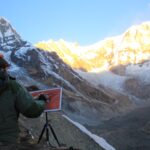

From Dialogue One: “The Rediscovery of the Earth—with Bruno Latour”
Anders Dunker (AD): Historically, the age of discovery is over. Are we none the less in a new age—an age of rediscovery—that can lift our spirits and propel us past the nagging feelings of tragedy?
Bruno Latour (BL): Well, it is my way of being optimistic. It is my way of not taking part in the sense of doom. Scientifically and technically, it is perfectly rational to be a pessimist, but I don’t think it makes much sense politically. Optimism has nothing to do with technoscience—DNA plus cognitive science plus robots plus outer space. Instead it is connected with exploring the world we thought we knew. I will borrow the term from you and call our time period an age of rediscovery, even if it is grandiose. What we call local has quite a different meaning in relation to Gaia than it previously had. It now has many different dimensions. The rediscovery of a place is in some ways a cliché—since ecologists have been talking about the same thing for years—but this concept also leads to a different way of framing the world, it leads to another geometry, so to speak. Water gets another meaning. Ice gets another meaning. Industry is considered in relation to the amount of CO₂ in the atmosphere. We see things in new ways. Antibiotics have a different kind of globalization than weeds, for example.
AD: Traditionally, the concept of the local has had a flavor of subjectivity—existence circumscribed by the immediate horizon—in contrast to the scientific gaze, which purports to see everything as if from outer space?
BL: And here lies the error. The local is objective. The gaze from inside the critical zone is completely objective, it is just objective in a different way. What we see is real, but this reality only becomes visible if we learn what different parties are up to, what they need, what they want, what they can accomplish.
Buy the book directly from the publisher, OR Books.
Podcast: Play in new window | Download


